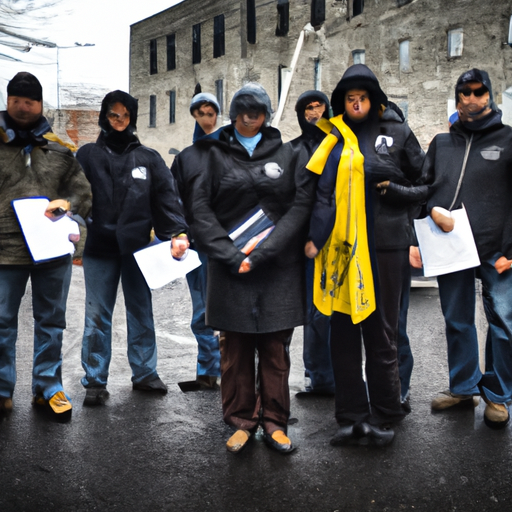Discussing Montreal’s Stance on Naloxone Amidst the Opioid Crisis
As the opioid crisis continues unabated across the globe, every jurisdiction grapples with its own unique set of challenges. Most recently, several boroughs within Montreal have become flashpoints of debate due to new policy decisions around the administration of Naloxone, arguably one of the most effective countermeasures against opioid overdosing.This articleprovides insightful context to the issue, revealing a fundamental tension between the desire to minimize harm and the regulation of who can provide essential medical intervention.
Effect of the Opioid Crisis in Canada
The opioid crisis has had devastating implications on a national level in Canada. The crisis doesn’t discriminate – affecting individuals from all walks of life. From high levels of homelessness and crime escalating in correlation to heightened levels of addiction, to the increasing number of opioid class actions against pharmaceutical companies asserting their nefarious roles in the crisis – the landscape is indeed strenuous.
The Role of Naloxone
Naloxone has emerged as a vital tool in this battlefield. It is an effective antidote to opioid overdose, capable of reverse substantial harm if administered timely. Non-medical professionals can administer it safely, and it’s increasingly seen in the hands of first responders, community health workers, and even friends and family of those grappling with opioid addiction. But policy decisions in several Montreal boroughs have created a concerning paradox.
The Montreal Naloxone Paradox
Based on this CTV news report, several Montreal boroughs, in a bid to protect municipal employees from the associated legal implications of harm, have made a policy decision to ban non-medically qualified staff from administering Naloxone. This action is not in alignment with current provincial health regulations that seem to encourage the wider distribution and use of Naloxone.
Key Takeaways
- Naloxone is a crucial tool in combating opioid overdose.
- Several boroughs in Montreal are stopping non-medically trained staff from administering Naloxone.
- These decisions could potentially increase the risk for opioid addicts in overdose situations due to delayed intervention.
- There is a need for better alignment and communication among all regulatory bodies regarding the distribution and use of Naloxone.
Addressing the Naloxone Paradox
The current predicament underlines the crucial need for unified policy decisions at various levels of regulation. Is it potentially detrimental to those at risk of overdose to limit the administration of Naloxone to only medical professionals? Does this not implicitly assign a lower value to the lives of opioid addicts who are at risk and in need of timely assistance?
While the safety and legal safety of municipal employees cannot be ignored, the time-critical nature of the opioid crisis necessitates swift action and a reconsideration of such policy decisions. Equipping individuals with the knowledge and tools to act fast in situations of opioid overdose could be the critical difference between life and death.
Concluding Remarks
It’s evident from this discussion that navigating the opioid crisis requires more than one-dimensional policy making—it requires nuance, empathy, and agility. The balance between protecting employees from possible legal action and the moral impetus to save lives forms the real crux of the situation. The key takeaway here must be an understanding that such multifaceted issues demand communication, understanding, and flexibility from all stakeholders in the opioid crisis, from municipal workers and health professionals to lawmakers. Only through this will the most effective and compassionate public health policy be enacted.
